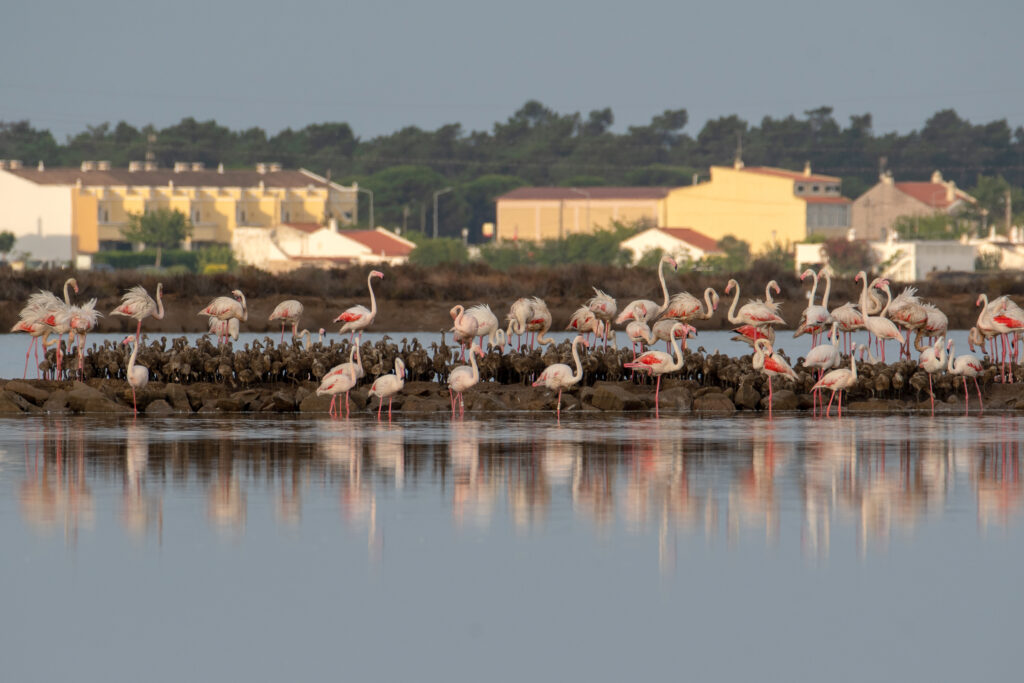The environmental association ZERO denounced to the General Inspectorate for Agriculture, Sea, Environment and Spatial Planning the occupation of areas of the Sapal de Castro Marim Nature Reserve and Vila Real de Santo António by intensive irrigation crops, namely avocado trees, for not complying with the Land Use Plan for this Protected Area.
In a statement, ZERO says that, in the summer of 2019, it confirmed "the installation of several projects, totaling around 40 hectares, occupying spaces that border on the wetland".
These areas, according to the environmental association, "do not fit into the provisions of the management instruments in force, namely in the Management Plan of this Natural Reserve, nor with the conservation objectives that led to its classification as a Special Conservation Area ( Natura 2000 Network) and RAMSAR Site».
ZERO maintains that "the avocado plants in question occupy areas of Partial Protection type I, type II and areas of Complementary Protection type I, thus classified in the Planning Plan" of that Nature Reserve, considering that, from the analysis of permitted and conditioned activities , the association considers that "there seems to be no compatibility with this type of non-traditional crop and an intensive monoculture system in irrigated land".
«For some time, ZERO waited to see what the intervention of the Institute for the Conservation of Nature and Forests (ICNF) would be, but the maintenance of the plantations led the Regional Directorate for Nature Conservation and Forests of the Algarve to be questioned about the legality of the situation'.
«Incomprehensibly, there is a positive opinion from the Regional Directorate for Nature Conservation and Forests of the Algarve (DRCN Algarve of ICNF), dated 2018, for one of the projects, which only requires compliance with very general measures within the scope of installation and exploration of this space, while the legal procedures for another project are still underway, where two records were raised in March and May 2019», reveals ZERO.
From the content of the ICNF response, «it is also highlighted the information that there is great interest in the installation of orchards of this crop within the classified areas, which is why technical guidance was requested from experts in the field, which generates strong apprehension about the guidance of this body in the face of new projects that may be proposed for classified areas”.
According to ZERO, "a clear definition of public policies regarding agricultural intensification in classified areas is required", as "we are facing a situation where we cannot only speak of lack of inspection, but where the national authority for nature conservation has connived with economic interests”.
In response to ICNF's response, the environmental association "has already sent the General Inspectorate of Agriculture, Sea, Environment and Spatial Planning a presentation denouncing this situation." The intervention of this entity was requested in order to verify the legal framework of the intervention of the DRCN of the Algarve in view of the provisions of the Land Use Plan" of the Natural Reserve and "the management objectives foreseen in the Sectorial Plan of the Natura 2000 Network for this classified area".
"We are still awaiting the outcome of this intervention, without ZERO failing to consider the formalization of a complaint to the European Commission, given what we consider to be an infringement of the Habitats Directive and the Birds Directive."
The Planning Plan establishes "regimes to safeguard natural resources and values, establishing the uses and management regime compatible with the maintenance and enhancement of the characteristics of natural and semi-natural landscapes and the biodiversity of the respective intervention area", explains ZERO .
In the guiding principles, it states that "agricultural and pastoral activities must be developed in such a way as to guarantee their essential role in the maintenance of natural habitats and the structure of the landscape" and that "agricultural practices suitable for the exploitation of the soil and that it does not result in the degradation of the natural values present, in particular through the promotion of traditional regionally based products'.




















Comments